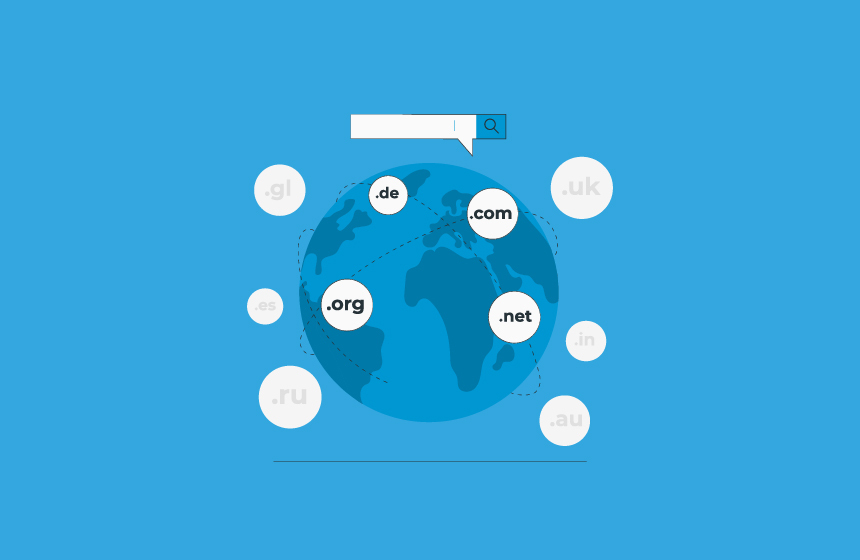Niche domains are one of the effective ways to establish a distinctive online presence for your business. These specialised web addresses cater to specific industries, interests, or communities, offering a targeted approach to online branding. However, the key to a successful niche domain lies not only in its name but also in the choice of extension.
In this article, we will delve into the art of selecting the perfect extension for your niche domain. The right extension will enhance memorability and contribute to your brand’s credibility and visibility in search engine results.
Additionally, we will look at the impact of keyword-rich domains, shedding light on how they can further amplify your online reach within your niche.
Table of Contents
Understanding Different Domain Extensions
Selecting the right domain extension is a pivotal decision that goes beyond the familiar .com landscape. The different types of domain extensions include general extensions, niche-specific alternatives, and country code top-level domains (ccTLDs). So, let’s look at these three domain extensions in brief.
Popular General Domain Extensions
When buying a domain, the .com, .net, and .org extensions reign supreme as universally recognised and trusted options. The .com extension, in particular, is synonymous with commercial ventures and is often the default choice for businesses. However, while these extensions offer a global appeal, their popularity also means high competition and limited availability. Plus, they can potentially dilute the specificity of your niche.
Niche-Specific Domain Extensions
Niche-specific extensions, such as .tech, .fashion, .club, and .music, not only convey the nature of your website but also add a layer of memorability. For instance, a tech startup might find .tech to be a fitting choice, instantly signaling its industry focus. These extensions can set your website apart from a branding perspective, contributing to a more targeted online identity. Additionally, they can enhance search engine optimisation (SEO) by aligning with specific search queries, potentially boosting your site’s visibility.
Country-Specific Domain Extensions
Country code top-level domains (ccTLDs) like .us, .uk, .co.uk, and .in serve as indicators of geographic relevance. When targeting a specific country with your niche domain, using its corresponding ccTLD can foster trust among local audiences. However, factors such as potential restrictions, availability, and the international scope of your business must be considered. Here, striking the right balance between global and local appeal is essential in leveraging country-specific extensions effectively.
Researching Keyword Relevance for Niche Domains
When it comes to niche domains, meticulous keyword research serves as the cornerstone for selecting the right domain name. Keyword research for niche domains includes:
Identifying Industry-Specific Keywords
You can use keyword research tools to find industry-specific terms that resonate with your target audience. Next, integrate these keywords seamlessly into your domain extension to enhance both relevance and searchability. For instance, if your niche revolves around sustainable living, incorporating keywords like “eco” or “green” into your domain can amplify your site’s visibility.
Competitor Analysis and Market Research
Another tactic is to analyse your competitors’ domain choices. This can provide invaluable insights into effective naming strategies. Moreover, stay attuned to market trends and consumer preferences to ensure your domain remains aligned with evolving industry dynamics. This can give your website a competitive edge.
Read: What are Domains and Nameservers
Factors Influencing Niche Domain Extension Choices
As the digital landscape evolves, strategic considerations come to the forefront when selecting the perfect domain extension for your niche. Some of the factors to consider for niche domains are:
Branding and Memorability
Your chosen domain extension is pivotal in shaping brand perception and memorability. So, a creative and relevant extension is essential to enhance brand identity, making it more memorable for visitors. Consider how Tesla utilises .com for its main site while embracing .energy for a specialised focus. This strategy effectively blends branding with specificity.
SEO Considerations
Domain extensions influence search engine optimisation (SEO), impacting a website’s ranking on search results. Integrating relevant keywords into your extension can positively affect SEO, enhancing the likelihood of your site being discovered. For example, a photography business opting for .photo in its domain extension aligns with both branding and SEO objectives.
Legal and Trademark Issues
Navigating potential legal and trademark pitfalls is essential when choosing a domain extension. Conducting thorough trademark searches mitigates infringement risks, thereby ensuring the chosen extension is legally sound. This precautionary measure is also exemplified by the importance of checking trademark databases before finalising extensions to avoid conflicts.
Tips for Choosing the Best Niche Domain Extension
Selecting a domain extension is an important decision that requires careful consideration. The tips below can help you make a well-informed decision, laying the foundation for a successful & thriving online identity.
Define Your Niche and Target Audience
Before delving into the world of domain extensions, a comprehensive understanding of your niche and target audience is imperative. Tailoring your extension to align seamlessly with your niche will not only enhance relevance but also establish a connection with your intended audience. For instance, a culinary blog might find resonance with .food or .recipes extensions, creating an instant link between content and domain.
Consider the Longevity of Your Niche Domain
Future-proofing your online presence involves anticipating the longevity of your chosen niche. A domain extension that stands the test of time can adapt to evolving industry trends. For example, a technology-focused site may opt for .tech, ensuring its relevance even as technology advances and trends shift.
Seek Professional Advice and Feedback
Navigating the nuances of domain extensions can be complex, making professional advice invaluable. Consulting with domain experts or digital marketing professionals can provide insights into best practices and industry trends. You can also leverage online communities and forums for feedback and diverse perspectives, which can aid in the informed decision-making process. Plus, if all else fails, you can try the domain name generator tool.
In Conclusion
Selecting the best niche domain extension is more than a naming choice; it’s a strategic decision that influences brand perception, memorability, and search engine visibility. Understanding the availability of different domain extensions, undertaking industry-specific keyword research, conducting competitor analysis, and considering branding, SEO, and legal aspects are crucial steps in this process. This can help you establish your unique digital identity that aligns seamlessly with your niche and resonates with your target audience.

